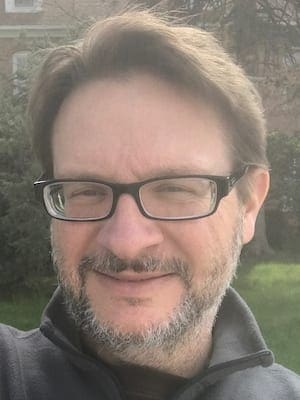Vice President Dick Cheney acknowledged Tuesday that the violence in Iraq is not yet abating, and that the process of handing over security to Iraqi forces has “a long way to go,” according to an NPR report.
The befuddling thing about his admission is, in mid-2005 he had declared that the insurgent violence was in its “last throes.”
In Wednesday’s report, Cheney said: “I would have expected that the political process we set in motion–the three national elections and so forth–would have resulted in a lower level of violence than we’re seeing today. It hasn’t happened yet. I can’t say that we’re over the hump in terms of violence, no.”
The vice president clearly slides away from the confident rhetoric of certainty characteristic of the Bush administration. Through his frank comments, he reveals an authoritative fallibility uncommon in the Republican ranks.
In a letter published in 1932 by the Christian Century entitled “The Grace of Doing Nothing,” H. Richard Niebuhr argued against the political tide of the day. He believed America should abstain from intervening in the Sino-Japanese conflict. “Nothing constructive can be done by interference but …something very constructive can be done in preparation for the future,” he said.
Niebuhr believed that America should not commit violence to violence in the matter. Because America had had more than a political hand in Japan’s militarism and imperialism, the righteousness of any intercession could not be guaranteed. On the other hand, deliberate inactivity in the matter might very well reveal other aquifers of righteous action.
His older brother Reinhold Niebuhr–in a letter published by the magazine a week later–rebuked H. Richard’s pacifism. Believing perfect love in social and political affairs impossible, the elder responded: “[A]s long as the world of man remains a place where nature and God, the real and the ideal, meet, human progress will depend upon the judicious use of the forces of nature in the service of the ideal.”
The younger Niebuhr’s notion of “the grace of doing nothing” is grounded in political agnosticism. It is not, however, a theological agnosticism. Doing nothing correlates to the repentant confession that we just “don’t know.” Just as “doing nothing” opens doors to God’s kingdom that “doing anything” does not, so, too, does “not knowing” more so than ‘knowing for sure’.
The American citizenry has witnessed time and time again this administration’s unwavering and almost blind certitude concerning matters of questionable fact. To name a few instances: weapons of mass destruction, Abu Ghraib, CIA prisons, Tom Delay, Tom Foley, global warming, the stability of Iraq and the progress of the Iraqi war.
Washington has transformed a vice of pride into a political virtue: uncritical justification borne out in impenetrable certainty. And why not? Americans depend upon the authority of that virtue to help them feel good about their violent actions in the world.
The deep moral problem with this kind of certainty is that it commits those in power to an unjust action like war. Certainty bespeaks inevitability.
The prophet Jeremiah understood well the concomitant nature of the relationship between certainty as uncritical justification and wrong action. His interchange with the prophet Hananiah in Jeremiah 28 reveals the grace of saying “I don’t know.”
Jeremiah found himself debating the revered prophet Hananiah before King Zedekiah. When Zedekiah was tempted to rebel against Babylon and Nebuchadnezzar, Jeremiah—wearing a yoke around his neck—spoke unpopular words to emissaries forming a political coalition against the Babylonian king.
Jeremiah admonished them, saying: “Do not listen to your prophets, your diviners, your dreamers, your soothsayers, or your sorcerers, who say to you ‘You shall not serve the king of Babylon.’ For they prophesy a lie to you.”
Hananiah, meanwhile, told the good king of Judah what he wanted to hear, a prophecy politically advantageous to his career: “Thus says the God of Israel: I will break the yoke of Babylon.”
Though Hananiah’s prophecy was untruthful, Jeremiah’s response to Hananiah was surprisingly mild. “Let it be so,” he said.
In jealousy, Hananiah then took the yoke from Jeremiah’s neck and broke it to symbolically back up his pro-Israel declaration. Furthermore, he decisively won the debate before Zedekiah’s court. Jeremiah walked away, not knowing what to say.
The drama of this story is Hananiah’s prophesy to a king who needed a sure word in order to keep his political life in place. He constructed certainty, in the clothing of prophecy, for the sake of telling Zedekiah what he needed to hear.
Jeremiah left the destructive circle of self-justifying lies to work themselves out. He essentially said “I don’t know” and left.
The grace of saying “I don’t know” does its work by truncating violent possibilities for action. Truthful agnosticism invites extensive investigation into alternate and diverse avenues for response and action. Uncritical justification closes them down.
As for the Bush administration’s justifications for going to war, only now are we seeing the consequences of his dogmatic and undemocratic justifications.
Andy Watts is an assistant professor of religion teaching ethics at Belmont University.

